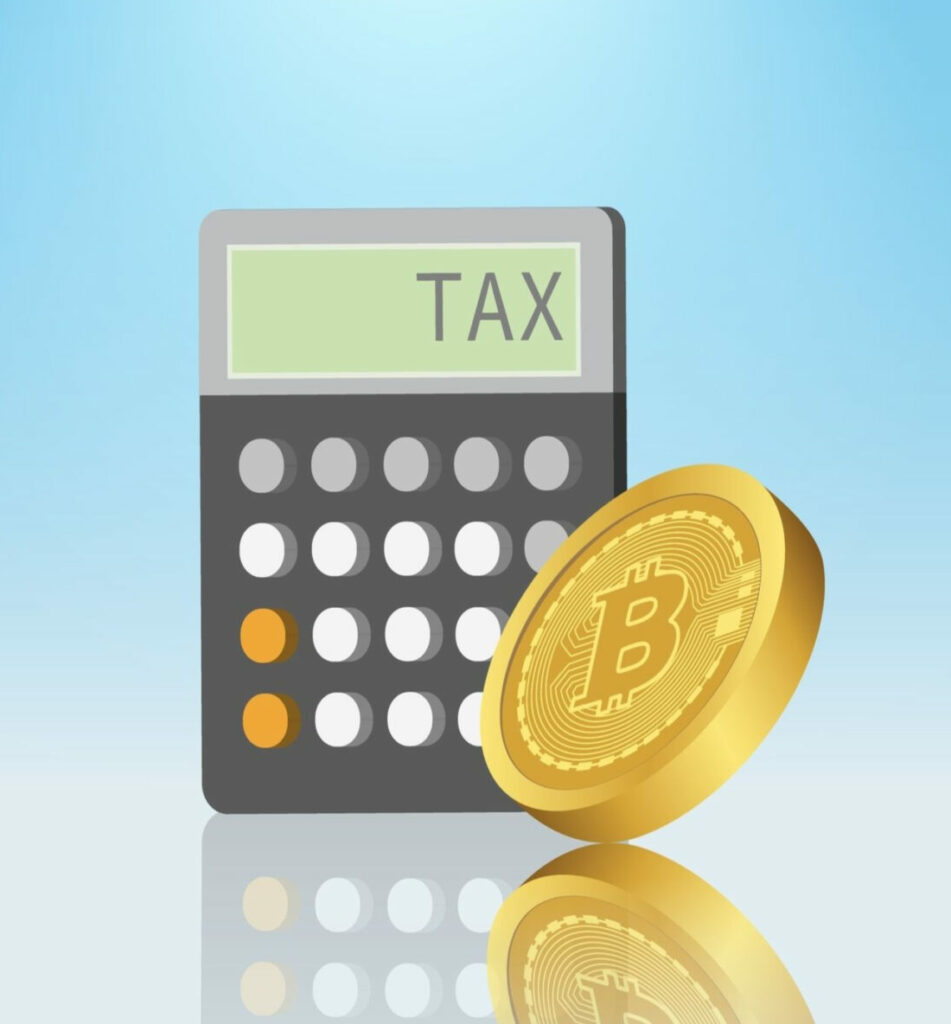Crypto Taxes in Ireland: The Complete Guide
Crypto taxes in Ireland are divided into mainly two categories –
- Capital gain taxes, which you pay when you dispose of your crypto.
- Ordinary income taxes, which you pay when you receive crypto as income or reward.
There are some other tax consequences as well, but the majority of crypto transactions fall under either one of these two categories.
Furthermore, in this article, we’ll learn:
- How crypto taxation works in Ireland, in detail
- How to accurately and efficiently calculate your crypto taxes
- Some common crypto taxable events
- How you can avoid crypto taxes in Ireland
- How to report and file your taxes
How Does Revenue View Cryptocurrency?
If you don’t know already, Revenue is the government body of Ireland that oversees taxes and everything related to taxes.
Revenue classifies crypto as property in Ireland.
How is Crypto Taxed in Ireland?
Depending on the nature of the crypto transaction you engage in, you’ll either pay capital gain or ordinary income taxes.
Let’s unpack both.
Capital Gain Taxes
Whenever you sell, spend or swap crypto, in other words, dispose of it, you’ll pay a flat 33% tax rate on your capital gains. However, if your annual profits don’t exceed €1,270, you’ll be exempted from all taxes on your gains.
Other than that, you can also offset your losses against your gains. On a side note, you can carry forward your losses indefinitely, as long as you don’t have any gains to set them off against.
Ordinary Income Taxes
Generally speaking, on any activity where you receive crypto as income, reward or interest, you’ll have to pay income taxes.
For example, getting paid in crypto, mining crypto, staking rewards, lending interests, rewards from liquidity pools or yield farming, etc.
If you are involved in any of these activities, you’ll be liable to income taxes. And, of course, the income tax rates vary based on the income bracket you fall under.
Also, note that you must pay capital gain taxes again when you sell (or dispose of) your received crypto in the future.
On a side note, if you’re dealing trades in crypto (phrase by Revenue) and qualify as a proper sophisticated business, you may be liable to a 12.5% corporation tax rate.
How to Calculate Crypto Taxes in Ireland

Depending on what taxes you pay, your method for calculating your taxes will differ.
For capital gain taxes, subtract the selling price or fair market value (FMV) by the cost basis of your crypto.
Fair Market Value – Cost Basis = Capital Gains
You’ll pay 33% tax on your capital gains.
For example –
Suppose you buy 3 ETH for €2000
After five months, you sell them for €5000
Now, you’ll pay 33% tax on your €3000 profit.
Similarly, if you had sold your crypto for less than its cost basis, you’ll incur a capital loss, which you can offset against your gains.
As for income taxes, it’s fairly simple.
The fair market value of your crypto at the time of receiving it is the amount on which you’ll pay income tax on.
For example –
Suppose you receive 8 ETH as payment for freelance services.
And the fair market value of those 8 ETH at the time you received them was €12,000.
You’ll now pay income taxes on €12,000.
How much you pay will vary depending on the income bracket you fall under.
Crypto Taxable Events
Although the above framework is more than enough to find out what and how much tax you owe to the government, the following are some common crypto transactions and their tax consequences for better understanding, plus some additional rules and frameworks around crypto taxes in Ireland.
Swapping Crypto
Swapping crypto or trading one crypto for another is a taxable event, even for swapping stablecoins. It’s taxed under capital gain taxes.
Gifting Crypto
Revenue views gifting crypto the same as disposing of it. Hence, you’ll pay capital gain taxes on the fair market value of the crypto you gift someone.
On the other end, receiving gifts is also taxable under capital acquisition taxes. You’ll pay a flat 33% capital acquisition tax on the fair market value of the crypto you receive as a gift.
Getting Paid in Crypto
If you’re getting paid in crypto for selling products or services, you’ll be liable to income taxes.
Staking Crypto
Similar to getting paid in crypto, on any rewards you receive from staking, lending, liquidity pools, yield farming, etc., you’ll be liable to income taxes.
Tax-Free Crypto Transactions
The following are some crypto transactions that are totally tax-free.
Buying and Holding Crypto
There are no tax consequences for buying or holding your crypto.
Transferring Crypto Between Wallets
Transferring crypto between wallets is not a taxable event. Some people often confuse its tax consequences with swapping crypto, but transferring crypto between wallets is totally tax-free.
Donating Crypto
There are no specific guidelines on donating crypto and its tax consequences in Ireland, but it’s most probably tax-deductible.
However, we suggest you don’t take our word for it and actually consult a tax professional for a better answer than “it’s probably tax-deductible”.
How to Avoid Crypto Taxes in Ireland
Firstly, it’s not possible to entirely avoid crypto taxes in Ireland unless you’re planning on tax evasion, which we definitely don’t recommend, as you may end up paying hefty amounts in penalties or even face criminal charges.
Don’t make the mistake of thinking that Revenue won’t find out because crypto is anonymous. Crypto might be anonymous, but most crypto exchanges you use aren’t.
Most crypto exchanges you use are obligated to share user identity and transactions with the government. So, sooner or later, they will come after the people avoiding taxes.
That’s what not to do.
But now, let’s talk about what you can do.

As mentioned before, you’re exempted from capital gain taxes on your crypto as long as your profits don’t exceed €1,270 in a financial year.
But apart from that, you can also use the tax-loss harvesting strategy to further reduce your taxes.
Tax-loss harvesting is an old-school tax-saving strategy where you deliberately sell your assets sitting at a loss to offset other gains and reduce taxes.
Check out our guide on tax-loss harvesting to learn how to implement this strategy in real-time to reduce your crypto taxes in Ireland.
However, while using the tax-loss harvesting method, keep in mind that Ireland has a wash sale rule that prevents taxpayers from exploiting this strategy.
Normally, Revenue uses the FIFO accounting method to calculate taxes. But the only time they don’t is when you buy a crypto or any other asset class and sell it within a month.
In that case, Revenue will consider that you sold the most recent version of the holdings, even if you had older versions of the same cryptocurrency.
For example –
Suppose you bought 5 BTC in January for €12,000.
In June, its fair market value is €10,000, meaning now you’re sitting at an unrealized loss of €2000.
So, you buy another 5 BTC for €10,000 (in June), and sell 5 BTC within the same month.
The idea is that you keep the 5 BTC but realize the loss.
However, that’s not how it works. As mentioned above, if you sell a crypto within a month of buying it, Revenue will consider that you sold the most recent version of the holding even if you had earlier versions of the same coin.
So, in this case, Revenue will consider that you sold the 5 BTC you bought in June for €10,000, whose cost basis is also €10,000, meaning you don’t realize any loss.
Similarly, if you sell a crypto and buy it back within a month, you can only offset the losses of the sold crypto with the gains of the ones you bought back within a month.
For example –
Suppose you sold 3 ETH for a loss of €3000.
But then you buy back another 3 ETH within a month.
The idea is once again to keep the crypto and realize the loss.
But as mentioned before, you can only offset the loss for that 3 ETH with the gains you incur in the future on the 3 ETH you bought back within a month.
This is to prevent people from exploiting certain loopholes in the tax system.
How to Report Crypto Taxes in Ireland
Whether you owe taxes or not, you must report all your crypto transactions, gains and losses on your tax return. And you need to file your tax return before 31st October as that’s the deadline in Ireland.
To make this process easier, make sure you keep all relevant records of your crypto transactions history like the date of purchase, the expenses, the date of sale, the selling price, etc.
To be fair, it can get pretty overwhelming, especially if you’re a day trader or involved in more complicated crypto activities like yield farming.
That’s why we suggest you use a crypto tax software like Bitcoin.Tax to make reporting taxes easy and seamless.